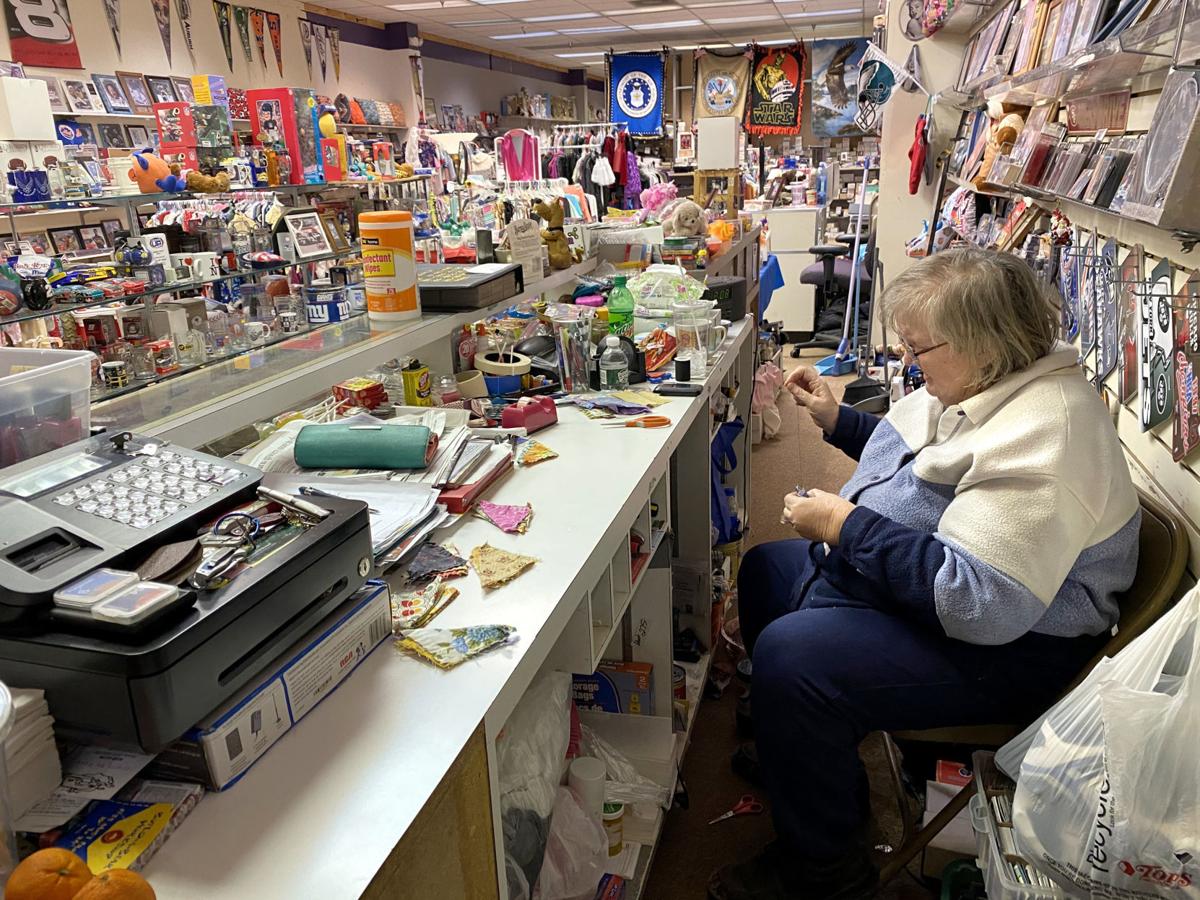To reduce density amid the coronavirus outbreak, Gov. Andrew Cuomo on Friday has ordered all employees of non-essential businesses to stay home, effective Sunday.
That's an increase from the restriction announced Thursday that non-essential businesses would be required to reduce their in-person workforce to no more than 25%. Earlier in the week, it had been set at 50%.
The orders led to an obvious question: What's considered an essential business?Â
The provided by Empire State Development, the state's economic development arm, provides answers, as of Friday morning.Â
People are also reading…
Essential services
Some of these are government functions, such as law enforcement, fire prevention and response, building code enforcement, emergency management and response, and security. Other essential services, according to the state, include building cleaners or janitors, general maintenance employed by the entity or an outside vendor, automotive repair, disinfection and doormen.Â
Health care
Because of the COVID-19 pandemic, there is a wide range of healthcare-related businesses that are considered essential: Hospitals, doctors and emergency dental care, elder care, nursing homes, residential health care facilities, congregate care facilities, emergency veterinary and livestock services, walk-in healthcare facilities, home health care workers and aides for elderly, research and laboratory services, medical wholesale and distribution and medical supplies and equipment providers.Â
Retail
Grocery stores, including all beverage and food stores, are considered essential services. Convenience stores, farmers markets, hardware and building materials stores and pharmacies are on the list. Bars and restaurants also make the cut, but are limited to delivery and takeout services. No dine-in customers can be served.Â
Manufacturing
Food processors and manufacturing agents — which covers all food and beverages — are on the list. Manufacturers of the following are also considered essential: Chemicals; medical equipment and instruments; pharmaceuticals; sanitary products; telecommunications; microelectronics and semiconductors; and household paper products. Agribusinesses and farms are essential services.Â
Infrastructure
The list covers everything from utilities — power generation, fuel supply and transmission — public water and wastewater entities. Telecommunications and data centers should remain open. Airlines and airports can continue operating in New York. Transportation infrastructure, such as bus and rail service, is considered essential. The essential transportation businesses include for-hire vehicles and garages. Hotels and places of accommodation have been added to the list.Â
Construction
Skilled trades, such as electricians and plumbers, are exempt from the requirement. Construction firms and other professionals for "essential infrastructure, emergency repair and safety purposes" are also considered essential.Â
News media
Digital, newspapers, radio and television news outlets are essential businesses and not subject to the workforce reduction requirements.Â
Financial institutions
Accounting services, banks, insurance agencies, payroll firms and services related to the financial markets have been identified as essential businesses.Â
Defense
Defense contractors and security-related operations supporting the U.S. government or a government contractor are exempt.Â
Services
This covers an array of businesses, including animal shelters, auto repair shops, childcare services, mail and shipping companies, laundromats, funeral homes, crematoriums and cemeteries. Trash and recycling collection, processing and disposal is included, along with building cleaning and maintenance, storage for other essential businesses and warehouse, distribution and fulfillment.Â
Service providers
The list includes food banks; homeless shelters and congregate care facilities; human services providers including the "direct care of patients in state-licensed or funded voluntary programs; "care, protection, custody and oversight of individuals both in the community and in state-licensed residential facilities; community shelters and other human services agencies providing direct care or support
Vendors
Businesses that serve as vendors and support essential government services aren't subject to the workforce reduction requirement. Other exempt businesses include child care programs, government-owned or leased buildings, logistics and technology support for online services.Â
Companies can request an essential business designation by  and returning it to Empire State Development.Â
Businesses that have one occupant or employee are exempt and don't need to submit a request, according to the agency's website.Â
If a business or organization has essential and non-essential services, then only the operations needed for the essential part of the entity are exempt.Â
Houses of worship aren't closed, but the state's recommendation is that services shouldn't be held.Â
Gallery: Living with the coronavirus in Cayuga County (March 20)
Coronavirus 1.JPG

Jeremiah Czyz, a senior at Auburn High School, holds a gym class for his siblings to get some exercise in the yard of the family's Owasco home for due to COVID-19 pandemic. Families are trying to maintain as normal a schedule as possible with students home because of school closings.
Coronavirus 3.JPG

Auburn Fire Department assistant chief Ed Sherman takes the temperature of firefighter Rick Smith. Both the police and fire departments are checking all personnel at the beginning of shift change as a precaution due to COVID-19.
Coronavirus 4.JPG

Craig Diego cuts Chris Lindsey's hair at Diego's Uppercuts Barbershop in Auburn Friday. Gov. Andrew Cuomo signed an executive order mandating that all barbershops, hair and nail salons, tattoo or piercing parlors, hair removal businesses and other personal care services close to the public. The order will take effect 8 p.m. Saturday, March 21.
Coronavirus 5.JPG

The Auburn Barbers shop is already closed before Gov. Andrew Cuomo signed an executive order mandating that all barbershops, hair and nail salons, tattoo or piercing parlors, hair removal businesses and other personal care services close to the public. The order will take effect 8 p.m. Saturday, March 21.
Coronavirus 6.JPG

The Auburn Barbers shop is already closed before Gov. Andrew Cuomo signed an executive order mandating that all barbershops, hair and nail salons, tattoo or piercing parlors, hair removal businesses and other personal care services close to the public. The order will take effect 8 p.m. Saturday, March 21.
Coronavirus 7

Pure Catering and Events posts a positive message on its sandwich board in Auburn due to the COVID-19 pandemic.
Coronavirus 8.JPG

Officer Charlie Augello works the command center at Auburn Police Department. The APD the lobby will be the only space in the headquarters open to the public. The APD said that an officer will be in the command center to answer questions and take complaints, but people who need a copy of a police record will be asked to fill out a form. Records will then either be sent through the mail or left at the command desk for pickup.
Coronavirus 9.JPG

Veterinarian Bill Nichols weighs Buddy during a check-up at his office in Skaneateles. Its recommended that owners create a preparedness plan that includes their pets in the event of a COVID-19 illness.
Politics reporter Robert Harding can be reached at (315) 282-2220 or robert.harding@lee.net. Follow him on Twitter @robertharding.

















